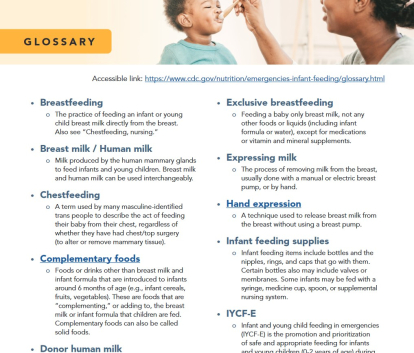CDC suggests that biological men can breastfeed
The organization suggests that drugs can be used to induce lactation without mentioning the risks that this could entail.

(unsplash)
A major national public health organization wrote an article stating that both men who identify with the opposite sex and women whose breasts were removed in gender reassignment surgeries can "breastfeed" their babies.
According to information from the Centers for Disease Control and Prevention (CDC) website, "an individual does not need to have given birth to breastfeed or chestfeed," so both transgender and non-binary people can do so.

Glosary CDC
According to the controversial publication, healthcare providers should be familiar with the medical, emotional, and social aspects that may be required by a transgender person when having a baby, which includes help to "maximizing milk production, supplementing with pasteurized donor human milk or formula, medication to induce lactation or avoiding medications that inhibit lactation, suppressing lactation (for those choosing not to breastfeed or chestfeed)."
These tips could be used by biological men who identify as women and choose to take hormonal drugs to mimic the female body and produce milk. However, treatments of this type can sometimes lead to irregular heartbeat irregularities in babies consuming this milk.
According to the Daily Mail, one of the drugs often used for this purpose is domperidone. However, the Food and Drug Administration (FDA) has warned about the serious adverse effects it could cause and even advised against the drug during breastfeeding.
Dr. Jane Orient, executive director of the conservative American Association of Physicians and Surgeons, told the aforementioned media outlet that many people are pushing to use this drug for a different purpose than it should, which could be harmful to children in the future.
"We have no idea what the long-term effects on the child will be (...)The CDC has a responsibility to talk about the health risks, but they have been derelict in doing that," she said.

























